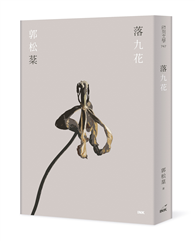In 1925, Pius XI staged the Vatican Missionary Exposition in Rome’s Vatican City. Offering a narrative of the Catholic Church’s beneficence to a global congregation, the exposition displayed thousands of cultural belongings stolen from Indigenous communities, which were seen by one million pilgrims. Gloria Jane Bell’s Eternal Sovereigns offers critical revision to that story. Bell reveals the tenacity, mobility, and reception of Indigenous artists, travelers, and activists in 1920s Rome. Animating these conjunctures, the book foregrounds competing claims to sovereignty from Indigenous and papal perspectives. Bell deftly juxtaposes the "Indian Museum" of nineteenth-century sculptor Ferdinand Pettrich, acquired by the Vatican, with the oeuvre of Indigenous artist Edmonia Lewis. Focusing on Turtle Island, Bell analyzes Indigenous cultural belongings made by artists from nations including Cree, Lakota, Anishinaabe, Nipissing, Kanien’kehá ka, Wolastoqiyik, and Kwakwaka’wakw. Drawing on years of archival research and field interviews, Bell provides insight into the Catholic Church’s colonial collecting and its ongoing ethnological display practices. Written in a voice that questions the academy’s staid conventions, the book reclaims Indigenous belongings and other stolen treasures that remain imprisoned in the stronghold of the Vatican Museums.
| FindBook |
有 1 項符合
Eternal Sovereigns: Indigenous Artists, Activists, and Travelers Reframing Rome的圖書 |
 |
Eternal Sovereigns: Indigenous Artists, Activists, and Travelers Reframing Rome 作者:Bell 出版社:Duke University Press 出版日期:2024-10-18 語言:英文 規格:平裝 / 240頁 / 22.86 x 15.24 cm / 普通級/ 初版 |
| 圖書館借閱 |
| 國家圖書館 | 全國圖書書目資訊網 | 國立公共資訊圖書館 | 電子書服務平台 | MetaCat 跨館整合查詢 |
| 臺北市立圖書館 | 新北市立圖書館 | 基隆市公共圖書館 | 桃園市立圖書館 | 新竹縣公共圖書館 |
| 苗栗縣立圖書館 | 臺中市立圖書館 | 彰化縣公共圖書館 | 南投縣文化局 | 雲林縣公共圖書館 |
| 嘉義縣圖書館 | 臺南市立圖書館 | 高雄市立圖書館 | 屏東縣公共圖書館 | 宜蘭縣公共圖書館 |
| 花蓮縣文化局 | 臺東縣文化處 |
|
|
圖書介紹 - 資料來源:博客來 評分:
圖書名稱:Eternal Sovereigns: Indigenous Artists, Activists, and Travelers Reframing Rome
Carceral Citizens: Labor and Confinement in Puerto Rico
Carceral Citizens: Labor and Confinement in Puerto Rico
Peace Museums: Selected Essays
Area Handbook for the Persian Gulf States
Area Handbook for the Persian Gulf States
Temporary Measures: Migrant Workers and the Developmental State in the Philippines and South Korea
Robert’s Rules of Order
Social Justice Through Sport and Exercise Psychology: Intergenerational Voices and an Embodied Approach
Social Justice Through Sport and Exercise Psychology: Intergenerational Voices and an Embodied Approach
That Futebol Feeling: Sport and Play in Brazil’s Heartland
Carceral Citizens: Labor and Confinement in Puerto Rico
Peace Museums: Selected Essays
Area Handbook for the Persian Gulf States
Area Handbook for the Persian Gulf States
Temporary Measures: Migrant Workers and the Developmental State in the Philippines and South Korea
Robert’s Rules of Order
Social Justice Through Sport and Exercise Psychology: Intergenerational Voices and an Embodied Approach
Social Justice Through Sport and Exercise Psychology: Intergenerational Voices and an Embodied Approach
That Futebol Feeling: Sport and Play in Brazil’s Heartland
|











